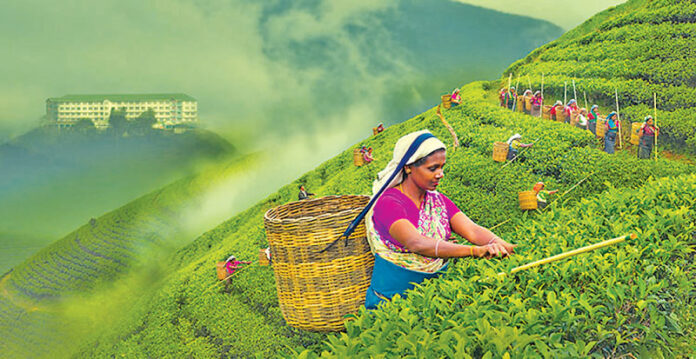By: Staff Writer
August 25, Colombo (LNW): Sri Lanka’s tea industry, the island nation’s largest agricultural export earner, recorded an encouraging recovery in July 2025 with shipments reaching 24 million kilograms (Mnkg), a 13% increase from 21.3 Mnkg in the same month last year. According to Siyaka Research, which analysed Customs data, this was the highest monthly export volume in 42 months, last seen in December 2021.
Exports for the first seven months of the year have totalled 150 Mnkg, up 7% compared to 140.4 Mnkg in 2024, marking the strongest performance since 2021. Earnings too have hit a record, with Rs. 263 billion (approximately US$884 million) generated in January–July. The average Free on Board (FOB) value of $5.87 per kilogram is the highest-ever recorded for Ceylon Tea.
Value-added tea exports have risen to 58%, the best in six years, reflecting Sri Lanka’s gradual shift toward higher-value branded teas. Among markets, Iraq remains the largest buyer with 22.3 Mnkg, while Libya’s imports surged from 3.7 Mnkg to 13 Mnkg. Russia matched Libya at 13 Mnkg, followed by the UAE (10.6 Mnkg) and Turkey (10.3 Mnkg).
Yet, despite this export performance, the industry continues to grapple with deep-rooted structural problems. The absence of a clear policy framework from the government has left both private and state-owned plantations struggling with rising costs, inconsistent productivity, and mounting labour issues.
Wage negotiations with estate workers have dragged on for months, with plantation unions demanding significant increases to cope with cost-of-living pressures. While the government has promised to implement a revised wage structure, progress has been slow. Analysts warn that without fair wages and investment in
mechanisation, Sri Lanka risks losing competitiveness to regional rivals such as Kenya and India, which continue to modernise their plantation operations.
State-owned plantation companies, which account for nearly one-third of the tea cultivated area, are in particular distress. Many remain burdened with poor management, outdated infrastructure, and weak productivity levels, despite repeated calls for restructuring or partial privatisation. Productivity on these estates is estimated to be 20–30% below that of well-managed private plantations.
Industry experts note that although global demand for orthodox Ceylon Tea remains strong—especially in Middle Eastern and Russian markets—supply bottlenecks and policy uncertainty could undermine long-term growth. Exporters have also expressed concern over inconsistent government decisions on fertiliser imports, taxation, and energy costs, all of which directly affect plantation operations.
